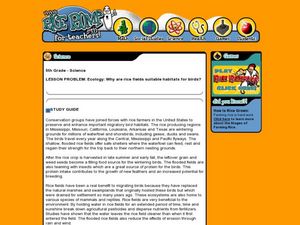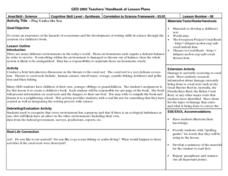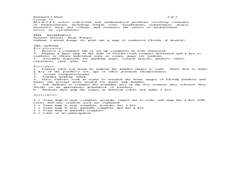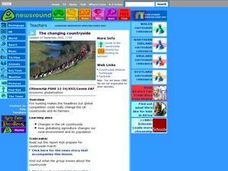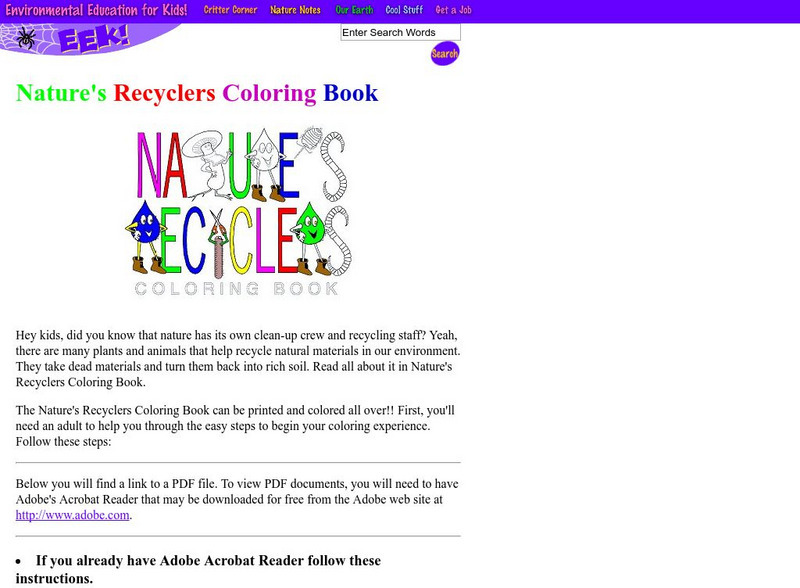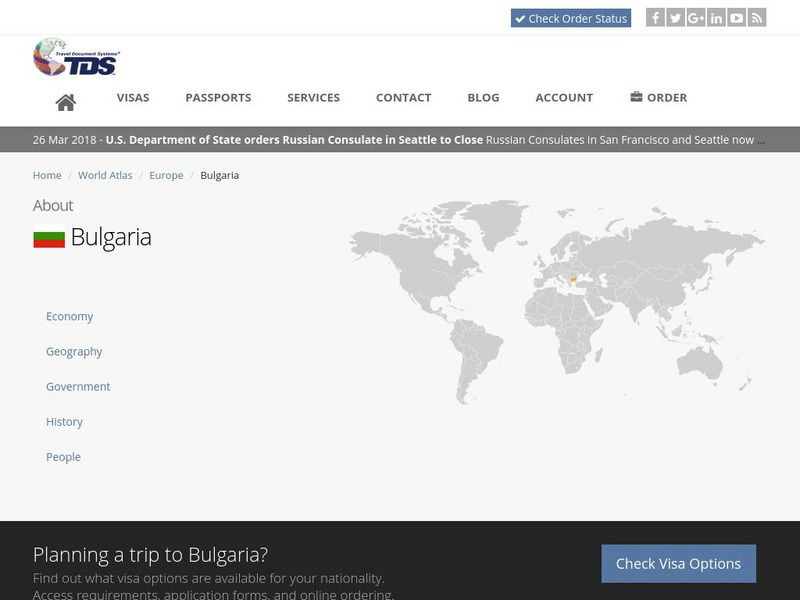Curated OER
Ecology: Why Are Rice Fields Suitable Habitats for Birds?
Fifth graders discover the uses for rice by reading about the habitats of certain birds. In this agriculture lesson, 5th graders research birds from the Gulf Coast and California and their reasons for living in rice fields....
Curated OER
Water Quality Tests Explained
Students identify the eight tests done to check for water quality. In this ecology lesson, students explain why it's important to test water in rivers. They explore sources of river water pollution.
Curated OER
What is Wrong with My Pond?
Middle schoolers examine various pond water samples to identify water quality. In this water quality instructional activity, students will identify levels of nitrates, ammonia, pH, hardness,and alkalinity in pond water. They will explain...
Curated OER
Germinating Seeds on Gelatin
Young scholars germinate seeds in unflavored gelatin to which liquid house plant food has been added. Students observe and record plant growth in this medium with a variety of variables in a number of experiments.
Curated OER
Chemicals in Your Life
In this chemicals instructional activity, students fill in 61 blanks of statements comparing the chemicals used in farming and the chemicals found in medicines and food.
Curated OER
Play Under the Sea
Students explore the hazards of ecosystems and utilize their writing skills to create a studenT book. Threats to the ecosystem of the coral reef are discussed and used as a model for the research of the group.
Curated OER
Take a Dip: The Water in Our Lives
Students explore the function of storm drains and the importance of keeping them clean of debris. They obtain permission from local authorities and perform community service painting stenciled messages near existing storm drains.
Curated OER
Clean Kansas Water
Students gain an understanding of ways we can be responsible custodians of our water supply. Students explore the governor's clean water initiative involving the Lower Kansas/Republican river basin and the pollutants present there.
Curated OER
Noah's Ark, Revisited
Fourth graders do a visual presentation for a specific endangered species.
Curated OER
Bat Facts
Student's demonstrate an understanding of basic facts about bats by creating a picture representation of bats in their habitat describing information they learned. The lesson is especially favorable for visual learners.
Curated OER
Exploring Bats
Third graders create a graphic organizer about bats in cooperative groups. The graphic organizer is used to illustrate the information that has been researched. The specific graphic organizer is the KWL.
Curated OER
Think Green
Students experience and practice compositing and recycling through hands-on-activities. They distinguish between which items from their trash can be recycled, composted and reused. The process for making recycled paper is also covered in...
Curated OER
Home on the Range
Young scholars use maps and mathematics to determine the appropriate panther population in a given area. In this Florida ecology lesson, students research the area requirements of male and female panther and use a map to help calculate...
Curated OER
Who Works in This Forest?
Students examine the variety of jobs that are related to working in the forest. Information on the different jobs is provided in this lesson plan for the teacher to share with the students. The students create a collage using magazines...
Curated OER
The Portable Niche
Third graders, in groups, research animals, plants, and conditions found in ecosystems.
Curated OER
Mud in the Water
Students build a soil erosion model to study the importance of soil conservation. They investigate how land forms from both constructive and destructive forces.
Curated OER
Pollution Prevention
Students investigate how to reduce solid and hazardous waste, and estimate the amount of household hazardous waste in their community. Students discuss methods of changing people's habits, and how to convince them to use alternative...
Curated OER
The Changing countryside
Students draw a poster showing the costs and benefits of opening up Britain's farmers to the global marketplace. They use a piece of A4 or A3 paper in landscape. Students draw a vertical line to split the page in two. On the left...
Curated OER
Are You Thirsty: The Effects of Pollution on Drinking Water
Students discuss the different causes of water pollution. In this ecology lesson plan, students brainstorm ways to purify polluted water. They formulate their conclusion based on the results of the experiments.
Curated OER
The Original Layout of the Town of Deerfield
Eleventh graders explain that elements of the early settlement of Deerfield can still be seen in the town layout and in some of the early 18th century houses which survive. They read and analyze historical maps and analyze a drawing of...
Environmental Education for Kids
Eek!: Nature's Recyclers Coloring Book
Did you know that nature has its own clean-up crew and recycling staff? Yeah, there aremany plants and animals that help recycle natural materials in our environment. They take deadmaterials and turn them back into rich soil. Use this...
Travel Document Systems
Tds: Bulgaria: Geography
A brief but thorough description of the physical environment of Bulgaria including its terrain, bodies of water, and climate. Information is from the U.S. State Dept. Background Notes.
University of Illinois
University of Illinois: Illinois State Water Survey: Nitrogen Cycle: Human Impact on the Nitrogen Cycle
An overview of the impact of human activities on the environment and how those actions effect the nitrogen cycle.
University of Guelph
Canada's Aquatic Environments: Reproduction
A three-page introduction to reproduction in amphibians can be found at this site. Read about the various methods of reproduction, and what happens after the eggs are laid. There is also a section that shows the growth/development stages...
